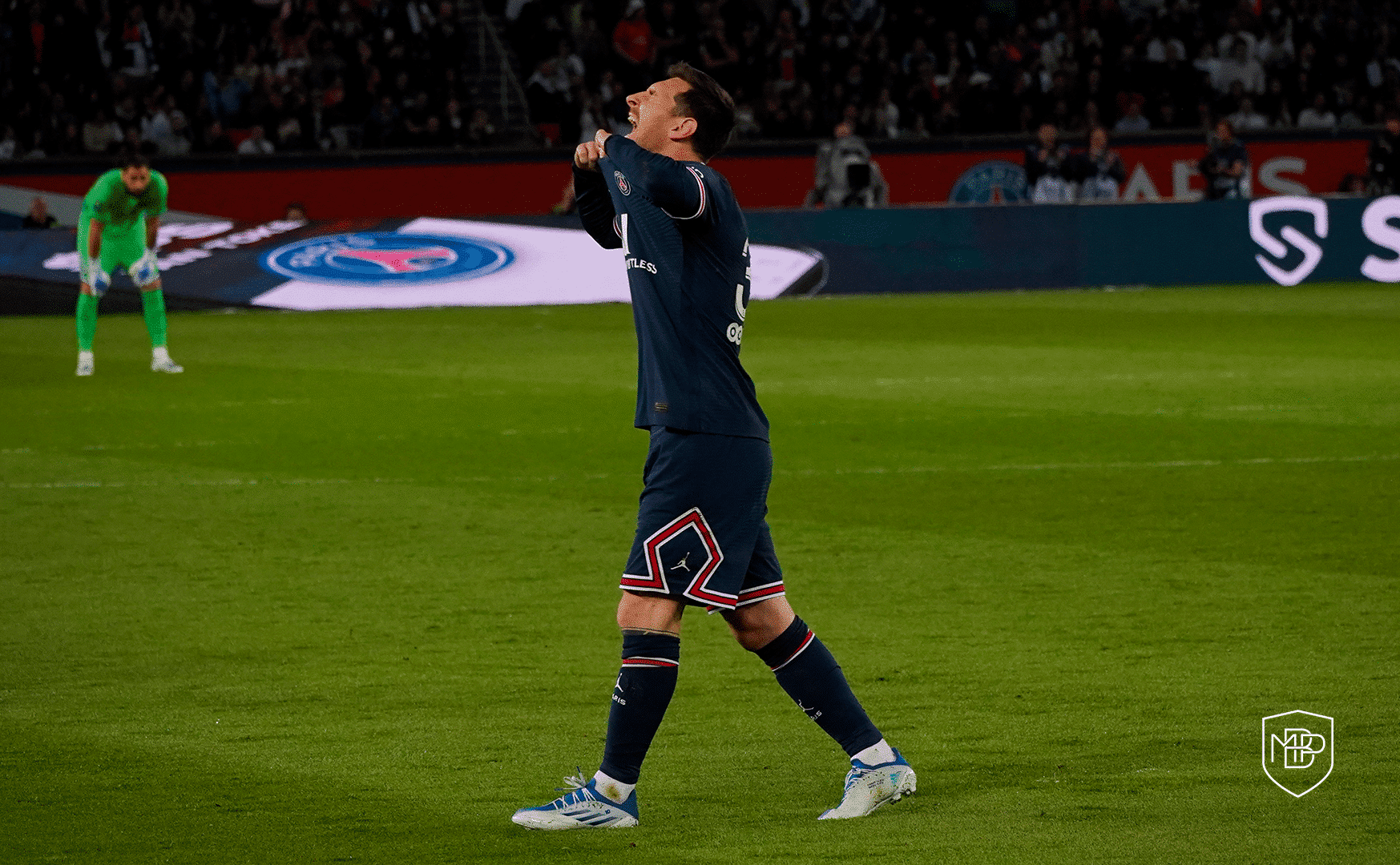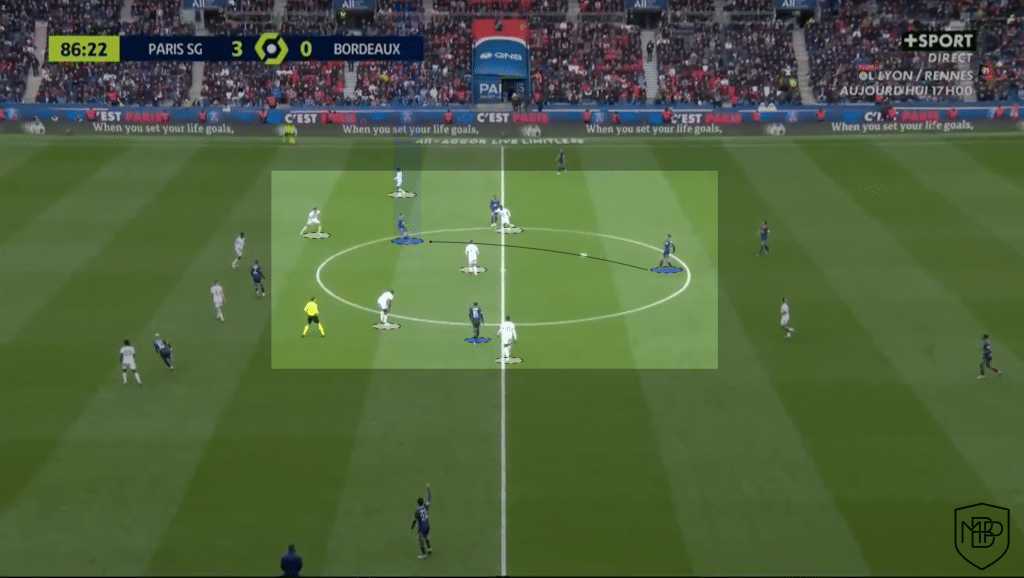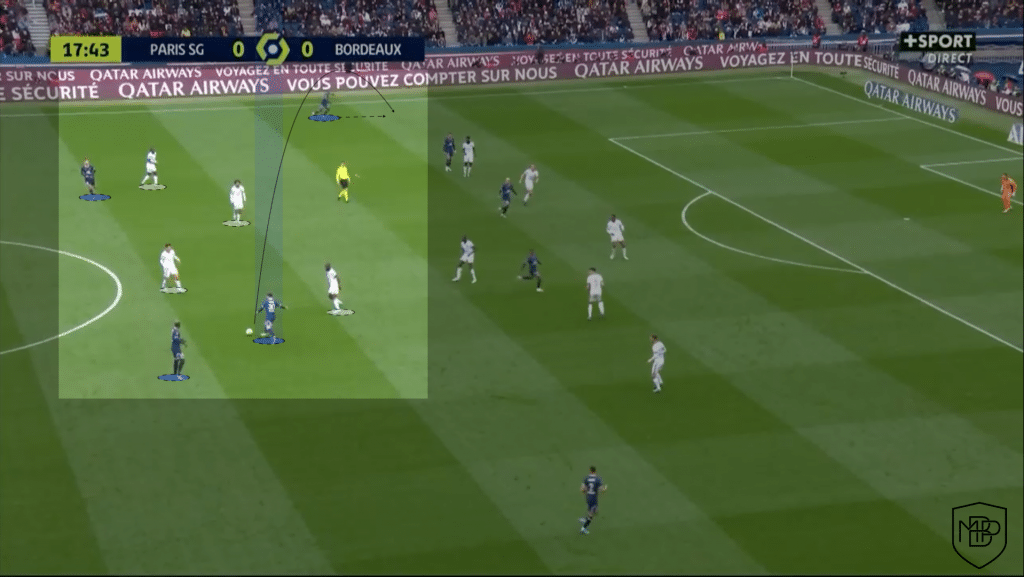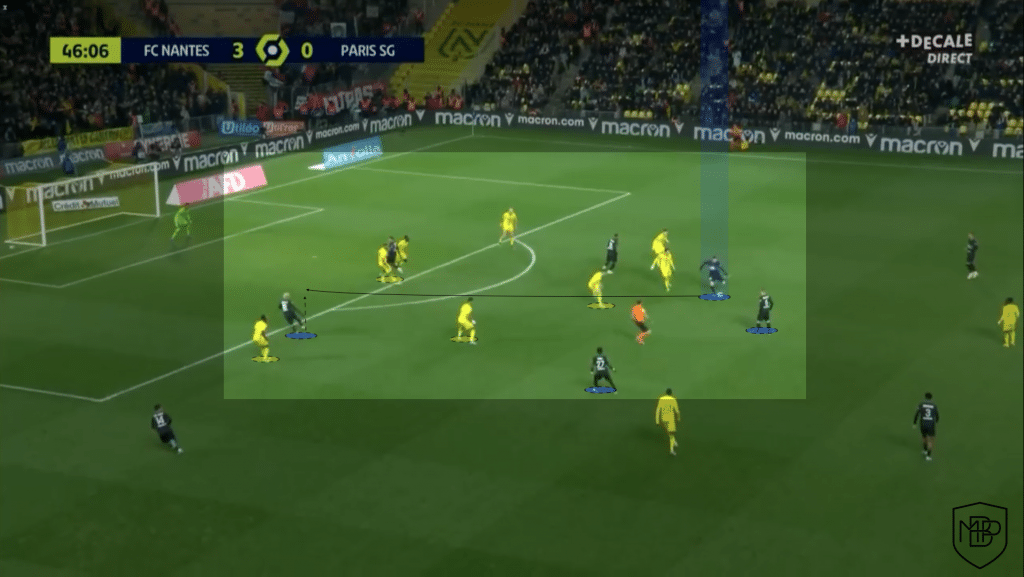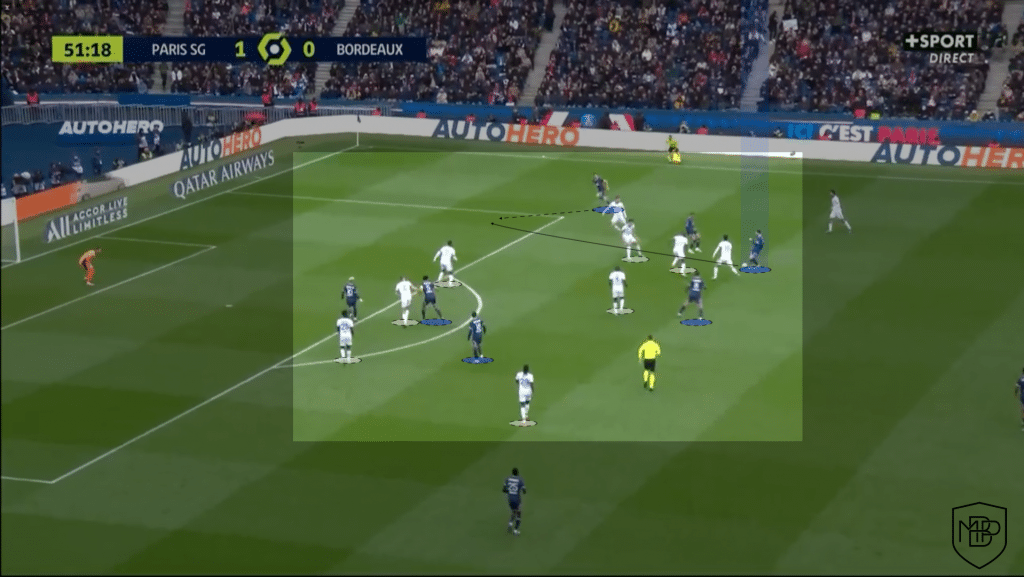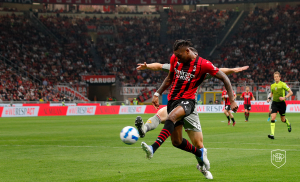Last summer, Lionel Messi left his lifelong club, FC Barcelona, for Ligue 1 champions PSG. The Argentine has had an atypical first season, undergoing a process of adaptation to the French culture and the style of play applied by Mauricio Pochettino. If we look at the individual numbers achieved by Messi, we can see a drop in relation to those of past seasons at the Catalan club.
At the MBP School of Coaches, we are going to analyse if the drop in statistical performance is due to the adaptation process that the Argentine has faced, or if, on the contrary, it relates to other factors.
Analysis
1. Firstly, we will analyse Messi’s role in the Parisian side in the attacking phase. The Argentine has occupied the right-wing position as a starting point in Pochettino’s basic structure. However, No.30’s area of influence has been more of a playmaker’s role.
Through the more inside position, Messi has been a key element in the French team’s moments of progression and attacking in the final 3rd. However, on the other hand, having more prominence in the build-up phase of the game has ‘negatively’ affected his impact in the finishing phase.
For this reason, we can understand the reason for the Argentinian striker’s drop in goals scored. In contrast to his time at Barcelona, in France, Messi has played a more important role in the build-up phase of the play, helping to develop PSG’s play, compared to the finishing phase, where other players have been the main focus.
2. The second point to consider is whether PSG’s game model enhances the strengths of the Argentinian, or whether, on the other hand, it reduces Messi’s individual potential.
Although in most games PSG they have been superior to their opponents through ball possession and the quality of their players, the Parc des Princes side’s game model is focused on having a greater impact in the attacking transition.
Mbappé, Di Maria and even Neymar are all lightning quick players in open play situations. On the other hand, Messi is no longer as dominant in this type of situation due to his age.
Therefore, we can conclude that PSG’s game model negatively affects the individual characteristics of the Argentinian, as it, unlike FC Barcelona’s style of play, encourages quick attacks rather than a more associative game.
3. Another factor that has contributed to the decline in the Messi’s individual numbers is the prominence of Kylian Mbappé in PSG’s play.
As has happened in the past at FC Barcelona with Messi and Neymar, or at Real Madrid with Cristiano Ronaldo and Karim Benzema, when a team has a player who is at such a high level, this indirectly affects the individual records of the rest of the players, as on many occasions they focus their play on maximising the strengths of the team’s star player.
Consequently, this is another factor that has caused the Argentinian’s goalscoring record to fall. However, we can see how Messi has been able to understand his role within the team, making a total of 13 assists this season.
4. Finally, one of the factors that has had the most negative impact on the player is football’s continuing evolution. In contrast to years ago, football has become a much more physical sport, where more and more players with a highly developed conditional structure are increasingly important.
This factor, coupled with the seven-time Ballon d’Or winner’s age of 34, has affected the individual performances of Messi. As a result, we will potentially see his position in the dynamic organisation of the team become progressively less important, being tasked with more responsibilities in the build-up phase rather than in the penalty area, where the physical demands are becoming greater and greater.
Conclusion
Although the process of adapting to a new club, a new game idea and a new country has affected the Argentinian’s game, there have been many other factors that has influenced the drop in Messi’s individual numbers.
However, at MBP School of Coaches, we are still eager to see how the Argentinian star’s second season at PSG will be once he has fully adapted and his relationship with the rest of his teammates has been 100% established.

